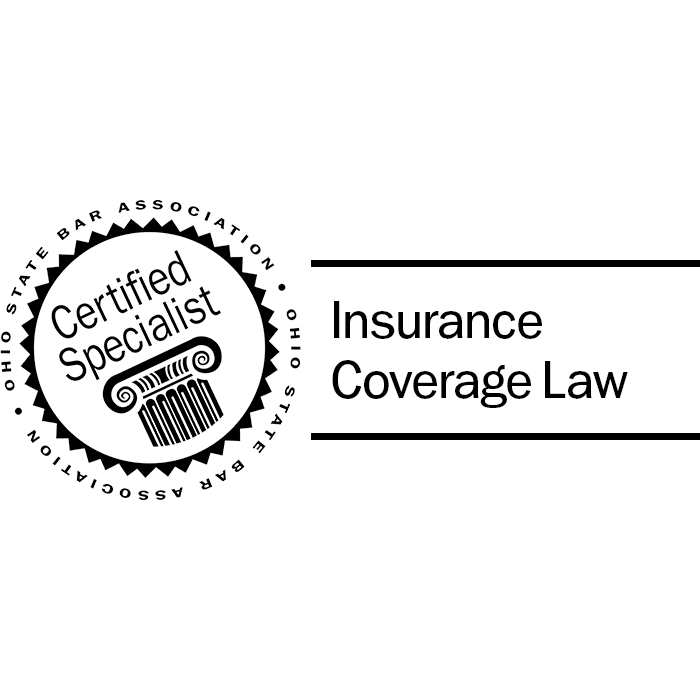
The practice of Insurance Coverage Law involves representing clients in matters related to insurance policies, coverage disputes, and claims handling. This includes handling a range of issues, from interpreting policy language to litigating disputes between policyholders and insurers.
The Ohio State Bar Association offers board certification in Insurance Coverage Law to attorneys who have fulfilled stringent criteria, demonstrating their proficiency and experience in this specialized area. To achieve this certification, attorneys must have significant practice experience in insurance coverage law, pass a comprehensive written examination, and receive favorable peer evaluations, ensuring they meet the high standards set by the Ohio State Bar Association.
When searching for an insurance coverage law attorney in Ohio, it is important to consider whether the attorney is board certified in this specialty by the Ohio State Bar Association (OSBA).
The OSBA's Specialization Committee is responsible for certifying attorneys as specialists in various practice areas. This certification process is regulated under specific rules and guidelines established by the Ohio Supreme Court and the OSBA.
The Insurance Coverage Law Board Certification offered by the OSBA recognizes attorneys who possess advanced expertise in handling cases involving insurance policies, coverage disputes, and related legal matters. This certification ensures that certified lawyers have demonstrated substantial experience and knowledge, adhering to the high standards set by the OSBA.
There are several benefits to obtaining a board certification in insurance coverage law. Certification signals high expertise in this area of law, assuring clients of the attorney's skills and experience. Furthermore, certified specialists stand out in a competitive legal market, enhancing their reputation and credibility.
Lawyer Legion maintains a directory of board certified insurance coverage law specialists in Ohio. This directory provides the public with a valuable resource that allows them to narrow their search to local attorneys who have earned board certification in insurance coverage law by the Ohio State Bar Association.
Lawyer Legion is the only commercial lawyer directory to properly acknowledge all ABA-accredited specialization programs and provide a dynamic directory of virtually every lawyer who has earned each certification, including board certification in insurance coverage law by the Ohio State Bar Association.
Use this directory to connect with lawyers who are board certified specialists in insurance coverage law by the Ohio State Bar Association. Start by choosing your county from the list below.
The Ohio State Bar Association (OSBA) offers board certification in Insurance Coverage Law to attorneys who demonstrate significant expertise and involvement in this specialized area. The certification process is rigorous and designed to ensure that only highly qualified attorneys earn this distinction. Below are the key requirements for obtaining board certification in Insurance Coverage Law:
These requirements are designed to ensure that certified specialists in Insurance Coverage Law possess the necessary knowledge, experience, and professional standing to offer high-quality legal services in this complex area of law.
The Ohio State Bar Association (OSBA) has established a comprehensive and detailed application process for attorneys seeking board certification in Insurance Coverage Law. This process ensures that applicants meet the high standards necessary for certification and demonstrate their expertise and commitment to the field. Below are the key components of the application process:
Once all components of the application are completed, the materials are submitted to the OSBA. The Insurance Law Specialty Board reviews the application, references, and exam results. If the board determines that the applicant meets all the necessary requirements, they will recommend certification. The certification becomes effective on January 1st following the board's decision.
This rigorous application process ensures that only highly qualified attorneys receive board certification in Insurance Coverage Law, thereby maintaining high standards within the profession.
The Ohio State Bar Association (OSBA) requires certified specialists in Insurance Coverage Law to adhere to specific annual duties and undergo a structured recertification process to maintain their certification. These requirements ensure that certified attorneys continue to meet the high standards of expertise, professionalism, and ethical practice.
Annual Report Submission:
Continuing Legal Education (CLE):
Annual Fee Payment:
Certification Period:
Recertification Application:
Criteria for Recertification:
Exemptions:
Material Changes:
Immediate Decertification:
These annual duties and recertification requirements are crucial in maintaining the integrity and high standards of the Insurance Coverage Law certification, ensuring that certified specialists continue to offer exceptional legal services.
